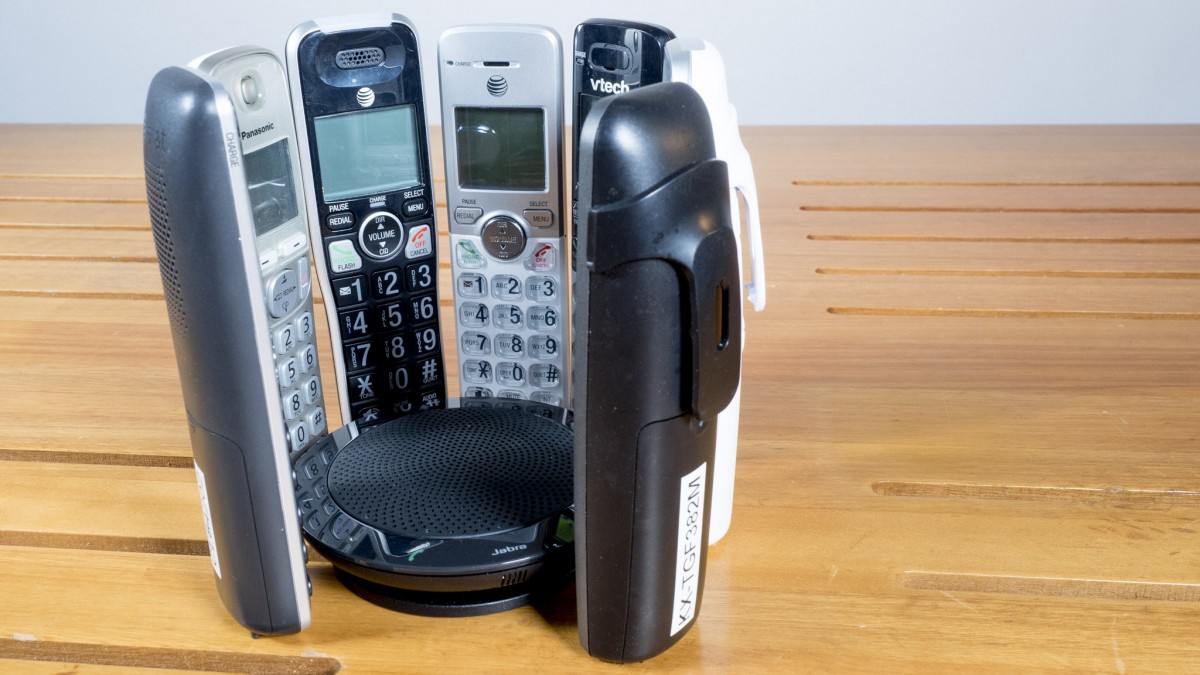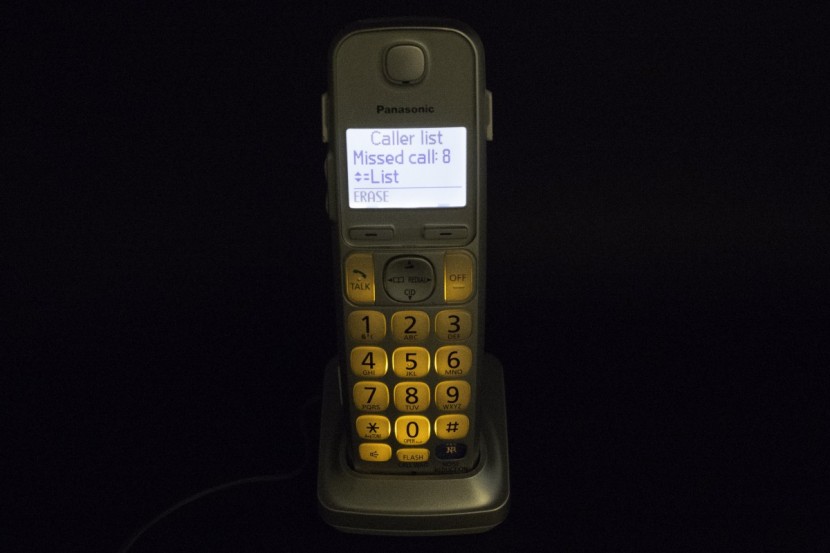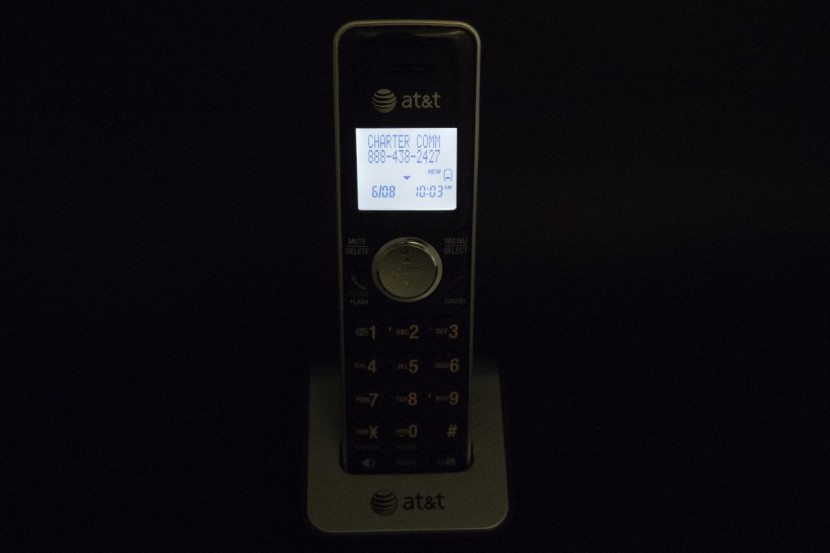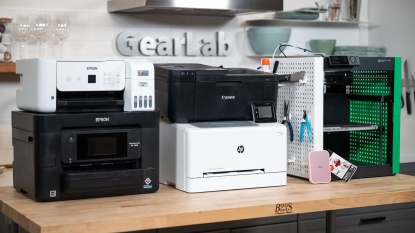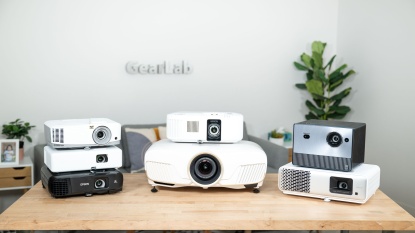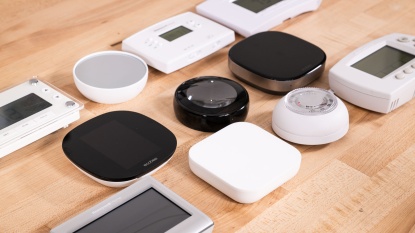How do you pick out which cordless phone will be the best for you? There are dozens of models available to choose from, with a plethora of features, and some of you may even be asking: Why even have a cordless phone? We have put together a step-by-step process to guide you through the selection process, to make it as easy as possible for you to find the perfect fit, and to highlight the features and functions that matter, and those that don't.
Why even have a cordless phone?
This fundamental question is tied very closely to whether or not you have a landline. It is now the era of mobile devices and the decline of landlines. Based on the results released by the CDC, nearly half of households in the US rely on a mobile device only.
If you are among this group that no longer maintains a landline, there will obviously be an extremely reduced benefit to getting a cordless phone. However, multiple models that we tested have a link to cell feature that is possible to use without the model being hooked up to a functioning landline. This allows you to use these models for making and receiving calls typically made on your mobile device. This would be useful for someone who only gets cell service in a particular area of your home, allowing you to leave your mobile device in that location and then answer calls on any of the handsets spread throughout the house.
If you are still debating on whether or not to get or keep a landline, there are some substantial benefits to having one. One major consideration is the ability to call 911 in an emergency. While your cell phone can use GPS-based methods to determine your location in the event of an emergency, your landline is tied to your address, including your apartment number. This can be extremely important if you live in a multi-unit building, as you want it as easy and as fast as possible for Emergency Services to locate you in the event of an emergency. Another benefit is that some models have a line power mode or a battery backup, allowing you to place a call when the power is out, while the telephone lines may still be functioning.
Now that you have decided to get a cordless phone, it is time to look at the different types currently available.
Types of Cordless Phones
900 MHz, 2.4 GHz, 5.8 GHz Frequency Models
The frequency is referring to what frequency the handset will use to communicate with the base. These numbers may seem somewhat familiar to you, as many other devices actually use the same or similar frequencies, notably baby monitors and WiFi routers. The fact that other devices utilize these same frequencies can have a negative impact on the range of your cordless phone, as well as cause harmful interference. We would recommend against getting any of these models.
DECT 6.0
DECT 6.0, or Digital Enhanced Communications Telecommunications is the newest advent in cordless phone technology. Models in this category use the 1.9 GHz band and may utilize frequency hopping within this band to minimize interference from other devices. These are what most modern phones use, and we would recommend that you only purchase a DECT 6.0 model of the cordless phone. This will provide you with ample range, as well as minimize any interference that you may get while talking, keeping all your calls as crystal clear as they can possibly be.
Now it is time to begin our step-by-step guide to aid you in finalizing your decision.
Step 1: Critical Features
Throughout our testing, we found a handful of features and functions that are crucial. We considered it a deal-breaker if any of the models did not have these. These features drastically improve the value of the phone, and we would strongly recommend that any model you select has each and every one of the following features.
Illuminated Buttons and a Backlit Screen
It is incredibly useful to be able to use the phone in a poorly lit environment. Taking a call at night, or saving a contact's info are all things that can happen frequently. It's bad enough being interrupted with a phone call while watching a movie or tv show, who really wants to also have to turn on all the lights?
Handset Locator
The namesake feature of a cordless phone can be a double-edged sword: An untethered handset gives you freedom of mobility from the base station, while also giving them the freedom to misplace the handset, or for the handset to wander off and find refuge in the deep chasm of your couch cushions. A handset locator allows you to page the handset from the base, and quickly and easily be reunited with it. We looked for locators that played a loud tone for a considerable duration, making your search much much easier.
Expandable Handsets
The ability to purchase an additional handset is a great feature, as you can't really know exactly where you would like to place the handsets around your home until some experimentation and tweaking have taken place. You may find that it would be much more convenient to add a handset in a different room, and the only models that allow expandable handsets afford you the flexibility to do that.
Some people may be interested in shopping for someone who is in their “golden years”, or may even be in their golden years themselves, and if that is the case, then there are a few additional features that should be present.
Large Buttons and Hyphenated Dialing
Larger buttons make it easier for anyone to use, and will especially benefit those that may have limited dexterity. We also found that models which automatically hyphenated the number when dialing were much easier to read and enter numbers mistake-free.
Hearing Aid Compatible
This feature is somewhat self-explanatory, and while you may not need it now (or ever need it), it doesn't hurt to be prepared, or there may be a time when a guest in your home would need this feature.
Caller ID Announce
The font on all models we tested was objectively small. The Caller ID Announce feature helps avoid squinting to read the screen of the phone when receiving a call, though some might not want this feature.
Now that you know the features that we would recommend anyone must have, let's take a look at what would make a cordless phone specifically right for you.
Step 2: Technophile or Technophobe?
Now is the time for a moment of introspection: Are you the type of person who wants the latest and greatest, the newest gadget with all the features, or are you more the traditionalist, wanting it simple, easy to use, and reliable?
Cordless phone technology has advanced considerably over the past 50 years or so, with models for the most technophilic and technophobic user.
The highest-end models are incredibly feature-rich, featuring the ability to act as a home intercom system, connect to mobile devices, and some even have a device-specific app. While these new and improved features are nice, they do usually come with a hefty price tag, and require some careful consideration about whether or not you will actually use these features, and how much they are worth it to you. In our opinion, we found these features a neat addition, but the substantial cost increases are hard to swallow.
In our testing, we put a much higher significance on ease of use, with it earning the 3rd highest weighting or our rating metrics. In general, we would recommend against selecting a phone just because of the latest and greatest features. In our experience, these tend to just complicate the phone and you probably won't really end up using them in the long run. However, these feature-rich models may be perfect for the true technophiles among us.
On the opposite side of the spectrum, there are those who want the most bare-bones model available. These phones have good range and sound quality, are easy to use, and that is about it. As mentioned above, any phone that uses DECT 6.0 technology will deliver sound quality and range that is acceptable for the majority of people. Some folks may want a phone that scores well in our ease of use category or just want a phone that makes and takes calls and just simply works.
Which Phone is Best for Me?
All in all, the majority of people will be happy with a phone that has decent range and sound quality. Cordless phones are a mature technology and perform well across the board. We would strongly caution against the fancier feature-rich models, opting for a more intuitive and easy-to-use option that still has all the most essential features.

